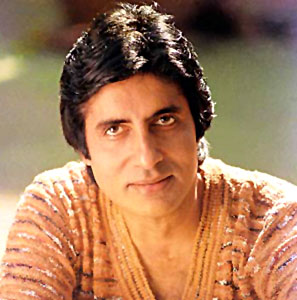 During the years of 1970s, a strong sense of sarcasm had crept into the soul of the nation and also affected the world of Hindi cinema. This sudden change in the industry resulted in the demolition of the violent, action-packed thriller films and the song and dance framed romantic films of the 1960s. India entered a phase of powerful political instability, financial uncertainty and social disorder. This scenario of the nation was adapted by most of the Hindi films in their own formulaic manner. Most of the films captured the mood of the nation by extracting high-pitched narratives that seemed to actively portrait the use of physical violence and unreasonable means to set things right.
During the years of 1970s, a strong sense of sarcasm had crept into the soul of the nation and also affected the world of Hindi cinema. This sudden change in the industry resulted in the demolition of the violent, action-packed thriller films and the song and dance framed romantic films of the 1960s. India entered a phase of powerful political instability, financial uncertainty and social disorder. This scenario of the nation was adapted by most of the Hindi films in their own formulaic manner. Most of the films captured the mood of the nation by extracting high-pitched narratives that seemed to actively portrait the use of physical violence and unreasonable means to set things right.
During the years of 1970s and 1980s, Hindi films rotated around heroes, anti-heroes who took on the system, changed the rules as and when it suited them and finally emerged with triumph. These blood-spattered battles fought on the screen by a brave male character, while the heroines were largely referred to a secondary role during this period. The heroines had roles that represented moments of wish fulfillment for the common man who, despite his rage and disappointment, did not have the strength to detain the speedy decline in the nation`s political customs.
This was the period referred as Bachchan`s era and yielded films like Sholay and Deewar, which projected the heroes as rebels who were determined to break social norms in order to achieve their goals. Aggression as a means to counter violence was widely accepted as the crowd realized that the state had lost its moral right to declare its authority and secure happiness and justice among the people. Individuals had to fight their own battles outside the framework of the legal and judicial set-up. Amitabh Bachchan came up with every kind of film that won the hearts of the audience. In fact, in one of his films Inquilab, he created the character of the angry young man, assumes the post of chief minister, and proceeds to shoot his entire cabinet, manned by a band of corrupt politicians.
During the 1970s, the rise of Amitabh Bachchan to superstardom was always in the context of anger that was boiling in society. He was the contrast of the conventional Hindi film hero, starting his career in low-key films such as Saat Hindustani and Anand. He portrayed a look that was not particularly handsome, but a gangly and awkwardly loose-limbed appearance. However his height, deep voice, and piercing eyes came to characterize the angry young man`s search for revenge and justice. The films he starred in were customarily revengeful sagas in which the leading lady was no more than a decorative piece and songs were mere attachments. Emerging as the onscreen retribution of offenders, Bachchan achieved a cult status. He became a symbol of hope for the common people. Bachchan was more than just an actor and his screen persona brought about a new image in the film industry.






